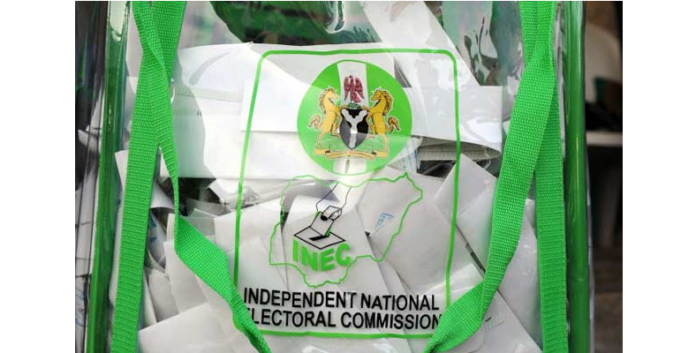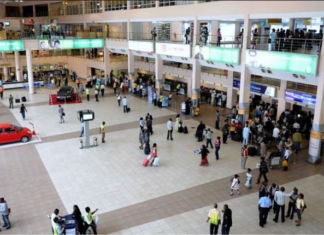History favours postponement of Anambra governorship poll
By Emma Nwosu
Is the Federal Government bent on imposing the All Progressives Congress (APC) on Anambra State – as widely speculated by conspiracy theorists – by proceeding with the November 6, 2021 governorship election, under the siege of 34,587 soldiers, secret servicemen and policemen?
With the Supreme Court decision in Imo State in favour of Hope Uzodimma who came fourth in the order of the governorship poll (which decision does not make sense to the lay man) another outcome under duress in Anambra State, just to gain firmer control of the South-East region, would amount to adding insult to injury and may have unintended consequences. That election had better be postponed.
The Federal Government has refused to learn that ‘show-of-force’, often, had unpalatable consequences for Nigeria’s political conundrum. Only the government of Umaru Musa Yar’Adua made the difference.
It was the ambition of the Northern Peoples Congress (NPC)-led Federal Government to secure firmer control of the Western Region, through the 1964/1965 parliamentary elections, which aggravated the political crisis of the region that eventually led to the fall of the First Republic. The siege on the region by the Armed Forces and the Police, could not stop ‘Operation Wetie’ – the people’s rebellion.
READ ALSO: Fears, uncertainties trail Anambra poll, despite official assurances
In 1967, the Federal Government repudiated the Aburi Accord (which addressed the Nigerian crossroads of the time) and, instead, levied war on the Eastern Region which, in response to the repudiation, made to secede as the Republic of Biafra. It is the same Biafra that the youths of the region are bent on re-incarnating today.
Apart from Biafra resurgence, Nigeria as a whole is yet to recover from the aftermath of that Civil War, particularly, the desecration of the federal system and Constitution (seemingly to the advantage of the North) by the military establishment which successively staged coups d’etat and ruled by decrees, unfettered, thereby, rendering the Nigerian system utterly predatory (to the peril of all) whereas Nigeria should be ahead of most G20 developed countries by now, given its development momentum by 1965. In the end, the civil war (in place of dialogue) did not resolve anything but worsened everything.
In 1995, the Federal Government – instead of extending any tangible succour to the Ogoni – hanged Ken Saro Wiwa and eight other members of the Movement for the Survival of Ogoni People (MOSOP) who vehemently protested the environmental degradation of Ogoni land by the oil exploration and production activities of Shell Petroleum Development Company. But shortly after, in place of MOSOP, arose the more deadly Niger Delta militants who sabotaged crude oil output to devastate the economy.
However, President Umaru Musa Yar’Adua, upon coming to power in 2007, saved the day, by dialogue. Imagine what would have happened to the country if Yar’Adua toed the usual path of force!
The indigenous Peoples of Biafra (IPOB) started as an unarmed separatist youth movement protesting the marginalization of their region and asking for the region’s independence from Nigeria. Instead of dialogue, as a first resort, the Federal Government embarked on unrestrained extra-judicial killing of their members by the Armed Forces and the Police throughout the region, levied ‘Python Dance’ on the South-East, invaded the premises of the IPOB leader, Mazi Nnamdi Kanu (during which many of his aides and supporters were killed) and precipitously branded IPOB as a terrorist organization.
One of the consequences of this show-of-force is the apparent radicalization of IPOB. That uprising which should have been resolved by dialogue or, even, referendum (which IPOB would have lost at that time) has been militarized into a big bone in the throat of the Federal Government as well as all the governments and people of the South-East!
Unlike its nascent days in 2017 (when it threatened that the Anambra governorship election would not hold, to no avail) IPOB has, since, developed the capacity to command the populace and to enforce its orders, going by the sit-at-home experience, even after the order was, purportedly, lifted.
Therefore, the sit-at-home it has decreed, from November 5 to 10, ostensibly, for the release of its leader, is bound to be observed. Worse still, other parties might leverage on its declarations to cause mayhem. Already campaigns are being disrupted while skirmishes are being waged with government troops – foreboding the election day scenario.
Should INEC proceed with the Anambra election, on the backing of the Armed Forces and the Police, the turnout of voters is bound to be very low, skewed and unrepresentative. The few who would brave tension – or who will be escorted to the polling stations – would be bought or browbeaten to vote in a pattern that is unlikely to reflect the will of the people. Voting could not be free and fair. At the best, the election would be declared inconclusive and goes to the tribunal and the Court. At the worst, the election would be cancelled after the avoidable waste of human and material resources.
Unlike the case of developed democracies, election boycott is senseless in Nigeria – beginning with the case of the United Progressive Grand Alliance (UPGA) against the Nigerian National Alliance (NNA) in the 1964/65 parliamentary elections. It has never been of any benefit to the boycotting party as its opponents would carry the day, without qualms, regardless of polled numbers.
Yet, it would be another case of impunity against the people should the INEC proceed with the Anambra election, in the prevailing circumstances, when it has had to postpone elections – even hours to the slated date – for minor logistics and security challenges, in previous elections, in 2007, 2011, 2015 and 2019.
The government will not lose face or anything, for that matter, by postponing the Anambra election until Mazi Nnamdi Kanu has appeared in court again on November 10 and to allow for more consultation and dousing of tension. Mazi Nnamdi Kanu was no longer handcuffed by October 21 and the judge may concede further palliatives by the adjourned date. The affective domain is critical.













